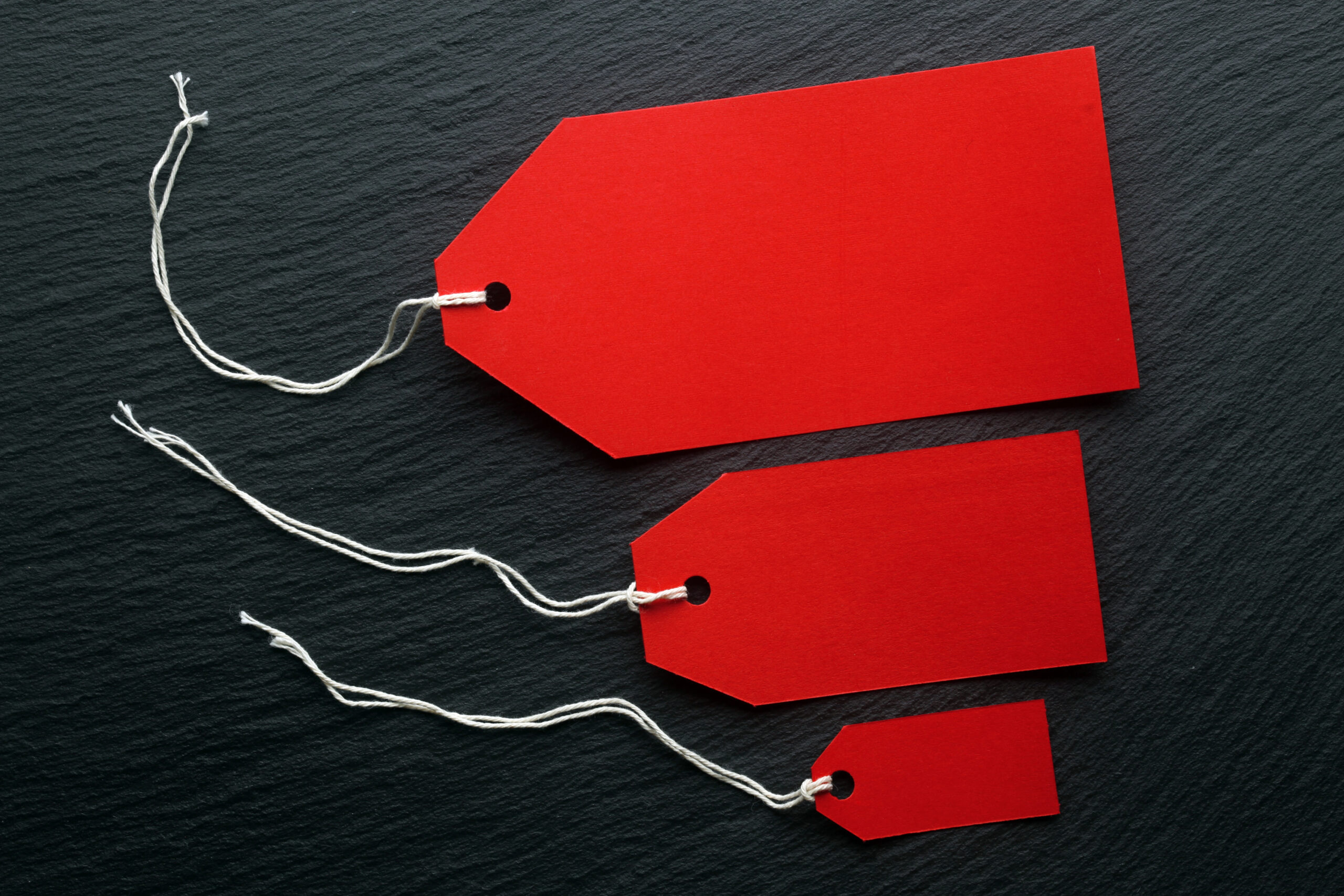“You aren’t helping anyone by leaving money on the table. That means you’re missing getting your message out or that you aren’t making a fair value for your work.” That’s a quote from Lee Stranahan within a comment he left on the Productive Flourishing blog.
As someone who grew up in punk rock culture, I happen to enjoy much of what Lee says. I want to add a caveat, however, sometimes leaving money on the table is a disservice to yourself, sometimes it isn’t.
If you’re not familiar with it, “leaving money on the table” is a phrase used in business when you miss out on money in a deal that was there for the asking. For instance, if you charge a client $200 for a service, but they would have gladly paid $500 without blinking, that’s leaving $300 on the table.
Not Fighting With Lee
For people in business who have a heart, leaving money on the table can be a problem, especially if you’re not making a living. Being afraid to know and charge your resonant price can be a problem for you and your clients. Being nervous about taking a stand can be a problem for your business. Refusing to market because you don’t want to bother people means that you and your clients miss out on the connection.
Lee is cheerleading those folks into stepping out with integrity. I applaud that. But that’s no reason to just run out and go crazy.
If worries and concerns about bothering people or doing the wrong thing are slowing you down, good for you. There is a legitimate concern here.
That Money Table is on a Slippery Slope
As I write this, millions of gallons of petroleum are floating through the Gulf of Mexico, landing on beaches and in wetlands, making their inevitable way toward the Atlantic Ocean and elsewhere. It’s an environmental holocaust, and being raised Jewish, I don’t use that word lightly.
British Petroleum (BP), the company who caused this disaster, had a reported 760 “egregious and willful” safety violations in the reporting period prior to the explosion that cracked the pipeline. Wow.
How could anyone, either within BP or the overseeing governmental agencies, allow them to get away with that?
I’m going to make a crazy-guess here that a combination of being afraid to “rock the boat” and an unwillingness to “leave money on the table” were big contributing factors. BP is a large, powerful corporation, and to whistle-blow on them could have severe consequences to any employee who stands up for what’s right. An unenviable situation at best.
Plus, oil is a big money business. When you’re at that scale, there isn’t much discussion about what is enough? Rather, the focus tends to be more-more-more, trying to squeeze every last penny out of the wells, which can lead to short-term foolish decisions to cut costs by cutting corners.
We can blame BP if we want, and they certainly bear a very heavy responsibility here. Yet the truth is that our entire economy is founded in this more-more-more mentality.
When that shows up in the same space as “trying to shine your best” within a small business, the whole thing starts looking a little blurry. It can be very difficult to discern between going full out with your heart and just going full out period and losing touch with a sense of sufficiency and enough-ness.
The entire Gulf of Mexico may not be at risk if you mess up in your decisions, but the idea of leaving an oil slick in your heart or on your customers is enough to give anyone pause.
When Do You Leave Money On the Table?
We sent out a good number of email notices about our Heart of Money course, which started last week. Once the early-bird deadline came, there were still spots left in the course, but I made the decision to stop promoting other than simple reminders at the end of the weekly article.
A few more people probably would’ve signed up before the deadline, but I heard an internal “click” in my heart say, “Enough. The right people have arrived. A few more will come; time to stop.”
So I stopped. And a few more people did evidently feel it was the right thing to sign up, but not because I sent out more notices.
I’m curious if you have stories of when you’ve heard that internal voice say, “Enough.” And how could you tell that it was the right thing to do, and not just fear keeping you small?
Let’s inspire each other to do the right thing without just reacting to fear, even if we haven’t squeezed every last coin out of the deal.
p.s. Hey, did you know we have two fantastic practitioners ready to roll up their sleeves and help you with your business?
Well, one at a time, of course. But they’re there. Come meet Jason and Yollana.







38 Responses
I’ve spent more years than I care to admit in the real estate development biz.
Like the oil game, there is frequently big dollars at stake, which often seems to distort otherwise good intentions.
Leaving all ethics aside, and from a purely pragmatic standpoint, I’ve found that ‘leaving something in it for the next guy’ typically delivers a better outcome than squeezing the lemon until the pips squeak.
That’s not to say that you need to be a cream puff, ’cause you’d then just get eaten alive. At least, that’s what it’s like in the RE development sandpit.
And I think maybe that’s Lee’s point.
Too frequently, I see folks being cream puffs, when what they need to do is get the business done …
… but getting it done equitably.
After all, only that which is equitable is sustainable, and to act without equity present is shortsighted.
It seems that crunching the best short term deal, leaving no one left standing in your wake, is unlikely to build an enduring and sustainable business.
The most successful real estate developers I’ve known, no cream puffs among them, seem to ‘leave something in it for the next guy” without ever underselling their offer.
Skillful means and good work by the developers.
Now, who would have thought that possible.
Sounds fabulous, Jeff. The only thing I have to take exception to is your capping on cream puffs. What’s wrong with a good cream puff? Delish. 🙂
I love that… “leaving something in it for the next guy.”
Hi Mark
What comes to me is that there’s an element of letting go and trusting the Divine in what you say here.
When we come to a certain point in business, by listening to our Heart we may get the message to simply trust that “not my will but thine be done” or, as I came across a few days ago from a lovely teacher named Adyashanti, “not my will but the Heart’s will be done”.
After all, who are we leaving something on the table for? 😉
thanks for your insights
Leo
Exactly- it’s about surrender. Because whatever we receive, Whose is it, really?
(btw- got your email and vm- I’ve been out of the office- I will respond!)
Hi Mark,
All I can say is that you care about people. It becomes more evident every time I read one of your posts.
Despite all the on-line talk about spirituality and authenticity, many folks still think their measure of success is how much money they can squeeze out of folks. It feels disconnected to me. I want to run away from it and I have.
Good use of the oil spill as an example.
The stock market drives these kinds of horrors with its maximize the bottom line mentality. Why not maximize making the world a better place for all?
Enough is a word not used enough. Thank you for using it!
Giulietta
.-= Giulietta Nardone’s lastest post: Do you hide out from living your one and only life? =-.
MOre enough! An abundance of enough! Enough to the max!
Or is that what we call “irony”? … 🙂 Thanks- I’m glad it all resonates with you.
Mark,
I have to say that this post (like so much of what you
Thank you so much for your kind words, Cathy.
Yes- need can spiral into despair- but only when we avoid the need. The neediness can feel very uncomfortable, and in avoiding that discomfort, trying to find certainty, our minds reach for the closest certainty available- the certainty that nothing will work, that we won’t be cared for, and that we’re doomed.
Despair is a great tactic to avoid true neediness. If you pay attention to the decision that comes right before the despair, you can find your way back to true need, which is where the compassion, the mercy and the love can be found.
How does that land for you?
Thank you for taking the time to explain. My sense is that this is a conversation that could go on for hours. I
Hi Cathy
Great! Thanks for adding to the conversation. I so agree with you about “being the carrot.”
The teaching about neediness is for those times when we don’t feel like we are the carrot, and are having trouble accessing it. What happens for many people is then they act “as if”- disconnecting from what’s true, and ending up even more distanced.
If what you’re doing is working, fantastic. If you’re feeling stuck, or like sometimes you can’t connect with the carrot, the neediness is a great place to go.
We’re all needy. Neediness is the lack that we all feel- I get hungry and so I eat- the hunger is need. I get thirsty, so I drink, the thirst is need.
This happens on a spiritual level as well. Without accepting and opening to neediness, where is the space to receive?
Of course, at a higher level, the neediness is an illusion- but it can feel all too real in the moment, and accepting it is, for me, the quickest path back to the carrot.
Yes!
You have to know your heart and be mindful of both your actions and your intentions, to know the difference between FEAR leaving money on the table and conscious not-pushing.
It’s tricky, because sometimes it feels “oh, you’re just scared to send another email”, when really, it’s my heart knowing that it is ENOUGH.
Thanks for the reminder!
.-= Tara’s lastest post: Brunch? Don
I know… it’s so tricky. When I’m uncertain I sometimes have to take quite a bit of time to discern the difference.
And I don’t always take that time… and then it’s a 50/50 chance. Which isn’t terrible odds, but still, I’d rather land on my heart with more certainty.
Which is why it’s so useful to slow down, eh?
As a matter of fact, it happened yesterday. I received an inquiry through one of my on-line retailers. He said a doctor in Texas wanted a quote for 400 packages of crackers for a kids diabetes camp. Now this particular retailer charges a bit more than I do on my retail site, so my first “thought” was, “I can give my retailer a finders commission, give the customer a decent discount for volume, and still make better than average wholesale.”
And then I asked my heart, and surprise, surprise…my heart said, “set the price so we get the usual wholesale price and the retailer gets the same commission we give to our dedicated sales reps and be grateful for the large sale”. So the discount I ended up giving was twice what my initial impulse was, and today I can faithfully say that my heart is happy and I’m still grateful for the extra business.
Whew! Dodged another oil slick…LOL!
Whew! Nice dodge… and what a great example. Thank you so much for sharing such a timely story.
And congrats on the order!
Folks- if you haven’t tried some of Jim’s crackers, you’re missing out. Big time. Amazingly delicious and good for you- go get’em.
http://www.livinspoonful.com
Mark,
So great to wake up to this post. I just shared in my own post last night how alignments in my own personal integrity have been brought forward while I considered what the BP Oil Disaster was trying to teach/tell me.
I love how you weave the corporate example in. And you really got me thinking about pricing etc in my own biz which helped me see yet again, how this powerful dynamic of coming into greater congruency with our own personal truths is happening on so many levels.
I believe strongly, that business is changing too. We are leaning into more equanimity. To me, another form of personal integrity. Which I hope will help us all redefine a new integrity in business too.
As I process my inner stuff and watch reflectively the outer stuff, I can see another reason why I just recently raised my rates. My own congruency finding it’s way.
This post is so timely for me. I consider you a gift in my world Mark.
.-= mynde’s lastest post: How The BP Oil Spill Got Me Thinking About Integrity =-.
Thank you so much, Mynde- it’s great to be in the world with you.
I believe business is trying to change. There are certain larger structures that are keeping things frozen and slowing progress down tremendously. I think the jury is still out which way it’s going to go.
But I remain hopeful! Which is why I’m doing the work I’m doing.
You rock.
My dad had a small dental practice in suburban Chicago. He ran it himself with one assistant.
His older brother had a large practice in a prestigious address in downtown Chicago.
My dad never had a crowded waiting room unless there was an emergency. People could end up waiting hours to see my uncle.
My dad, who’s a quiet introverted type liked the smaller, orderly practice. My uncle who was a bigger than life character loved his crowded, high profile practice.
Both were successful by their own standards.
People at times asked my dad why he didn’t take on partners and have a big practice like his brother.
My dad said he liked knowing he could be home by dinner and spend time with his family.
As a business owner, it’s important to know what success is to you. Sometimes what is leaving money on the table to one person is peace of mind for the other.
.-= Judy Murdoch’s lastest post: Why Being a Slacker is Critical for Business Success =-.
I love it, Judy- what a perfect compare/contrast example. So interesting the choices we make- I’m grateful your father was grounded enough to know what was true for him and resisted the “biggification” urge.
“I
Hi Mark,
Smart and caring, as always. My accomodation between the two halves has been to make something valuable, excitedly announce it, and then put zero pressure on people to buy it. I provide lots of information and trust that if it’s for them they will know.
Catherine
.-= Catherine Caine’s lastest post:
Nice. People put enough pressure on themselves- it’s good if we can lay off on the pressure ourselves…
Thanks for your kind words.
There’s also something about what you get in the long term by leaving money on the table.
When you stop promoting, sometimes that’s a way to use that opportunity to let your list relax before the next thing, or to promote something different.
When you leave money on the table for a particular transaction, sometimes that’s building up the long term relationship with that client/customer, building up their lifetime value.
Yes, I agree, I now listen to my gut much more than I used to. (Just as long as I make sure I’m listening to my gut, not my scared-and-wants-to-chicken-out part of my head.)
~ ElizabethPW
.-= Elizabeth Potts Weinstein’s lastest post: My Many Affairs, Far From Home =-.
It’s so true. It’s the smash-and-grab mentality that has one wanting to get all what’s there and get out.
But a true relationship is built by ever-increasing rounds of generosity.
Congrats on listening to your guts/heart more than the scared-chicken part (poor chicken!). You’ve had an amazing year, it looks like.
LOVED this post. I’ve lurked for a while, but had to comment on this.
It gets tiring to watch so-called gurus slam their lists with promo after promo – even for their affiliate lists – tying to squeeze one more sale out into a program or launch.
It wrenches my gut when I see it done, and I confess I used to do it against my own better judgement because I was “modeling” what Ihad seen done before.
Gack.
I won’t do it again. In fact, when I made the change to the process I use now, it actually became EASIER to get the word out because people can trust I’m not going to hammer them.
So when a program’s not filling like crazy, I take it as a sign that the right people are in, and the rest will follow when the time is right. So far, so good. 🙂
.-= Lisa Robbin Young’s lastest post: Mompreneur Success: Balancing Your Weakness =-.
Sounds like so good, so far. Right on!
Mark, as always your voice brings the sanity of love and wisdom to a frantic marketplace.
There’s a certain lightness with which I hold everything, including my business–an open palm, instead of one that grips tightly.
That which belongs with me, stays with me. That which does not, leaves. And some come and go and come back again until it’s clear where they belong.
The ground beneath any relationship–including relationships with clients, colleagues and business– is God’s presence. That is enough.
.-= Hiro Boga’s lastest post: Tsunamis In the House of Wholeness =-.
Amen- that is enough, isn’t it?
What a great post, Mark! Life always levels things. If you take 200 bucks when you could have easily charged 500, the remaining 300 always comes back to you in some way. And that ‘some way’ may not always be directly related to money. Being able to say ‘enough’ is another way of giving.
Judy, I loved your little story about your dad. It made me remember my own dad – may he rest in peace.
It’s so true.
Mark, I’m glad I started reading here!
I only just got started with my own business (literally opened my doors last week) and there is so much to learn and absorb that it can be overwhelming at times! But this post was really helpful.
I’ll be listening for that click!
.-= Lucy Viret’s lastest post: Why Doctor Who made me cry this week. =-.
Thanks for coming by, Lucy- I’m glad it’s landing with you. And Dr. Who- a bonus! 🙂
I like this a lot Mark.
It underscores something I’ve been feeling really strongly lately – the need to be even more conscious about what I’m doing with my business and why.
To really know where the urge to do something comes from. To have more clarity behind the action. So that I’m not just doing or not doing something because someone else said I should or shouldn’t.
I think it’s really easy to fall into a knee-jerk kind of place. Where someone says jump and you jump. And then someone says don’t jump and you don’t.
Giving myself space to be clear about what my people need, what my business needs and what I need feels like a critically important thing.
And it always seems to make knowing what to do or not do crystal clear.
Thanks for listening to your heart. And thanks for the gentle reminder to do the same.
.-= Fabeku Fatunmise’s lastest post: You are not their stories either =-.
No no no… thank YOU. It’s all done with mirrors. I love being in the some universe with you.
The real problem lies within researching your niche before starting, and then setting the right price, maybe a little higher then the normal. After that you can cut back with discounts, this make the customer feeling that he/she got a good deal.
Anyway, great post. Anyone dealing with sales this is an important question (maybe the most important?).
.-= Ko’s lastest post: Extra Cash =-.
I should point out that I often don’t completely agree with myself, either.
Great points being made here and yes, that quote came up in the context of cheerleading people.
I wrote a widely retweeted little thing the other day….”Two secrets to success. 1) Start 2) Finish”
I believe most failure comes from a lack of #1. People are too worried to put themselves out there. If you like gospel hymns, this is a good time to sing “This little light of mine, I’m gonna let it shine”
.-= Lee Stranahan’s lastest post: Interview: Jason Fried from 37 Signals =-.
Nice. 🙂 It’s so true- start and finish, big ones. I missed it, but then, I was off Twitter much of this last week- I’ll check it out.
It is funny how folks don’t start. It’s funny the things I’m afraid to start myself. Although I find for me it’s more like starting, getting 90% there, then stopping…
God, I love this post.
I’m reminded of the book I just finished reading: ‘The Power of A Positive No’ by William Ury which gives a similar example from a rocket launch which went tragically wrong because the executive decision was made to blast ahead even though crucial safety warnings were made.
It’s really exquisite to find that point of enoughness and recognise that more is not always better.
My business has been blooming recently, in large part thanks to your Organic Business Development Programme that I’m on with Jason Stein, and so now my main question is not: “How do I attract MORE clients/MORE income?” but “How do I find the RIGHT BALANCE of clients and income?”
The book by William Ury is highly recommended, by the way.
Thanks again,
Corrina
.-= Corrina Gordon-Barnes’s lastest post: 3 Tips For Alleviating
beating of hearts take centuries